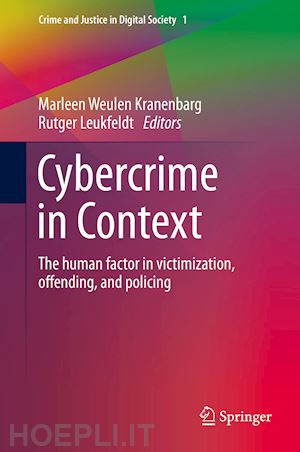
Questo prodotto usufruisce delle SPEDIZIONI GRATIS
selezionando l'opzione Corriere Veloce in fase di ordine.
Pagabile anche con Carta della cultura giovani e del merito, 18App Bonus Cultura e Carta del Docente
This book is about the human factor in cybercrime: its offenders, victims and parties involved in tackling cybercrime. It takes a diverse international perspective of the response to and prevention of cybercrime by seeking to understand not just the technological, but the human decision-making involved.
This edited volume represents the state of the art of research on the human factor in cybercrime, addressing its victims, offenders, and policing. It originated at the Second annual Conference on the Human Factor in Cybercrime, held in The Netherlands in October 2019, bringing together empirical research from a variety of disciplines, and theoretical and methodological approaches.











Il sito utilizza cookie ed altri strumenti di tracciamento che raccolgono informazioni dal dispositivo dell’utente. Oltre ai cookie tecnici ed analitici aggregati, strettamente necessari per il funzionamento di questo sito web, previo consenso dell’utente possono essere installati cookie di profilazione e marketing e cookie dei social media. Cliccando su “Accetto tutti i cookie” saranno attivate tutte le categorie di cookie. Per accettare solo deterninate categorie di cookie, cliccare invece su “Impostazioni cookie”. Chiudendo il banner o continuando a navigare saranno installati solo cookie tecnici. Per maggiori dettagli, consultare la Cookie Policy.